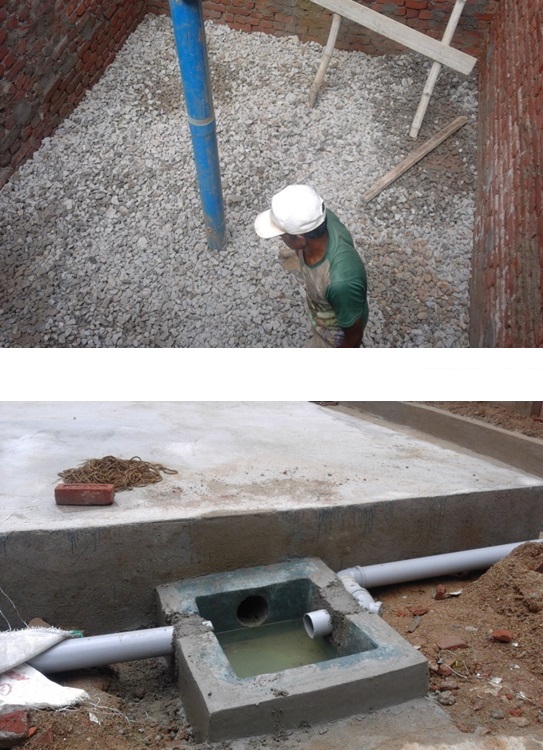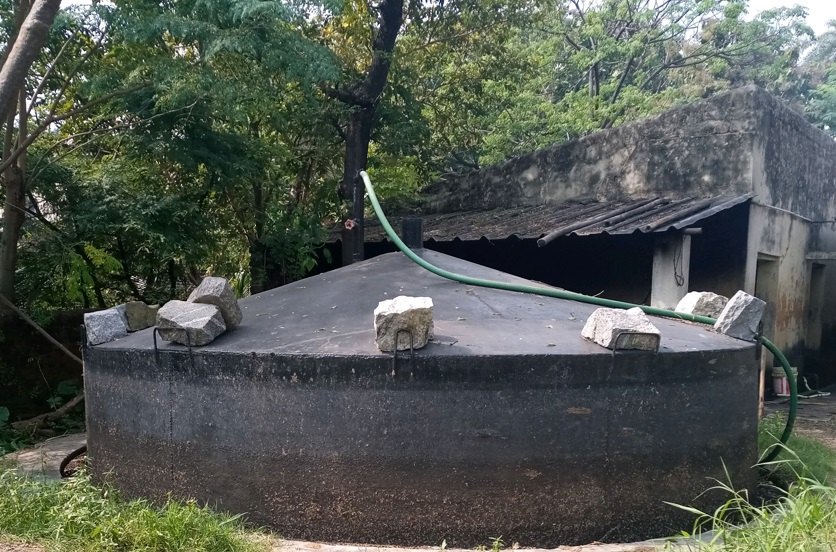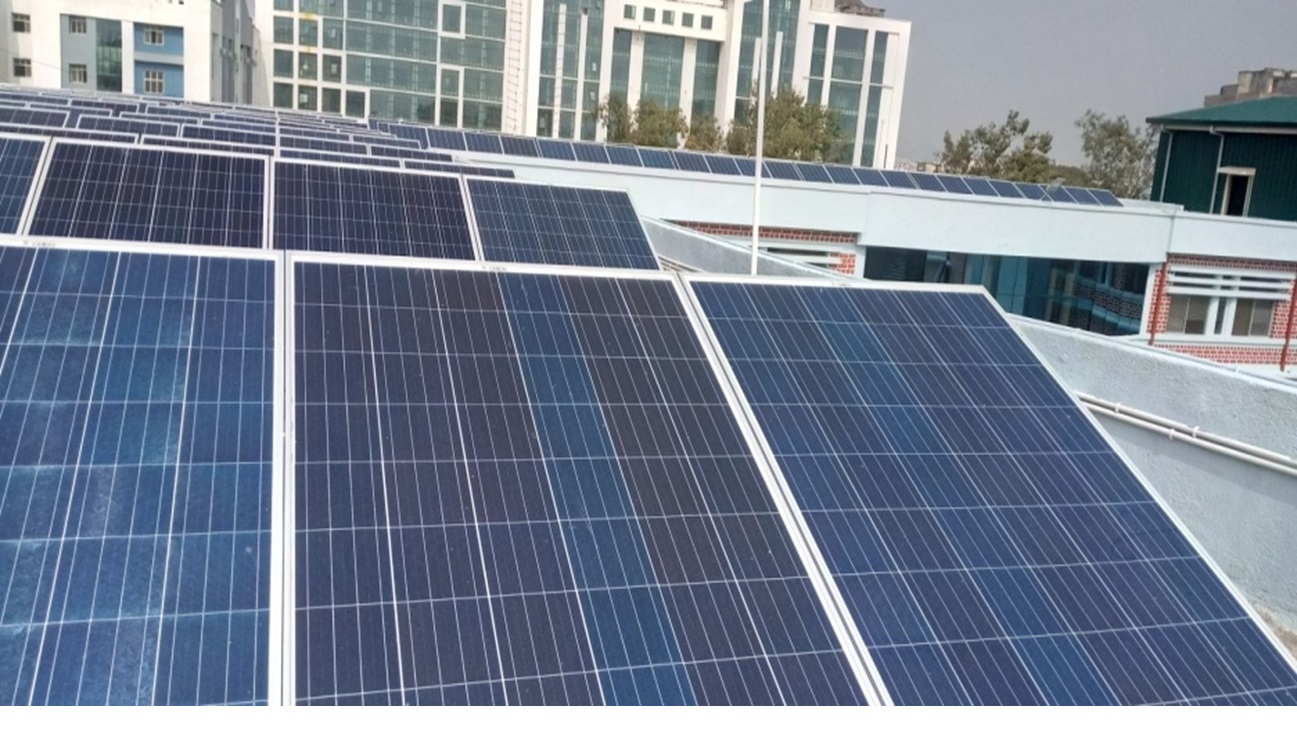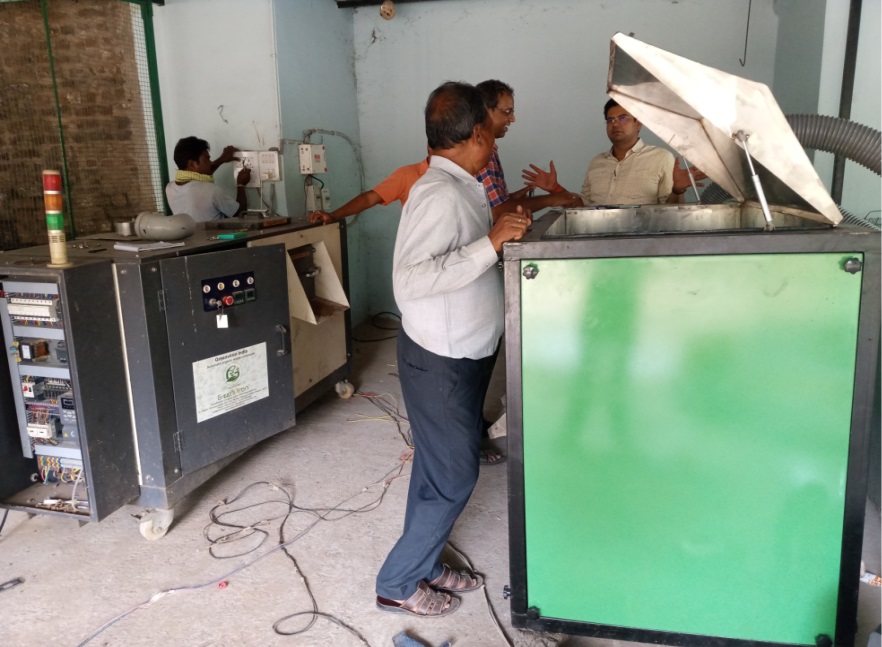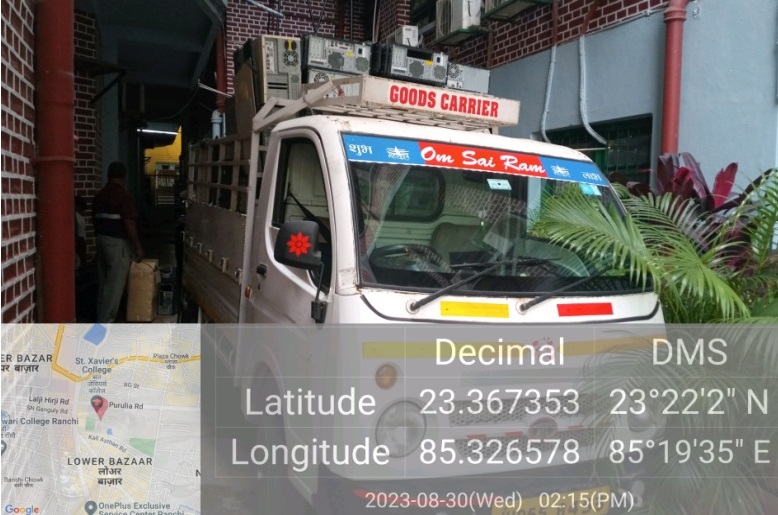- Solar Plant:
As part of Green Campus Initiatives to make the college a sustainable and environmental friendly institution SXC has installed 100kb solar power plant on the roof top of main building. It is truly a significant milestone. It generates electric power that is used in house electric needs. The power generated during holidays, Sundays and also excess power during working days is supplied to the electricity department.
The objective of installing the solar plant in the college campus is to reduce usage of conventional sources of energy and introducing non-conventional source of energy in academic practices, which can motivate student’s community for practicing the same in their day-to-day life.

